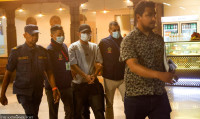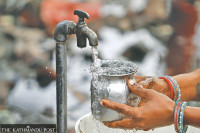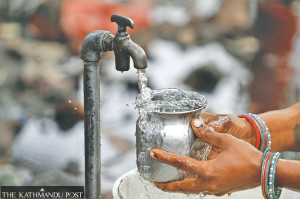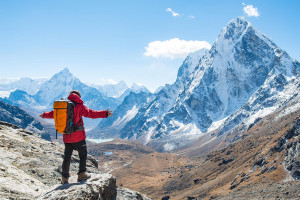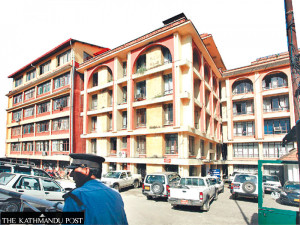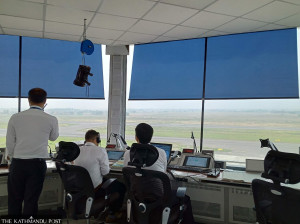Valley
Customs bar used shoes from Switzerland
Around 1,750 pairs of trekking shoes donated by Swiss companies to Nepal for use by porters and trekking guides have been held at customs in Tribhuvan International Airport
Weena Pun
Around 1,750 pairs of trekking shoes donated by Swiss companies to Nepal for use by porters and trekking guides have been held at customs in Tribhuvan International Airport for the last three months. According to TIA customs officials, the used shoes will soon be seized and either destroyed or auctioned off.
The news of the gift was formally shared in October through a high-profile event in which Ram Kumar Shrestha, the minister of tourism, had lauded the enterprise for its support to Nepali porters and tourism industry. At the programme attended by Swiss Ambassador to Nepal Urs E Herren as well, the shoes donated by the Swiss public via Swiss companies, Globotrek, LOWA and Transa were interpreted as a symbol of strengthening bilateral relations between Switzerland and Nepal.
The Fiscal Act 2013/14, however, bars the import of any used items other than those of machinery equipment used in industrial projects or in civil aviation. If an international organisation wants to donate second-hand goods, they have to be for relief and rescue efforts and the organisation should receive prior permission from the Nepal government.
The Act does not define “relief and rescue efforts”, but Director General at the TIA customs office Kishor Jung Karki says it normally refers to relief and rescue missions carried out during natural disasters and emergency situations. Boxes of second-hand shoes meant for the “relief” of porters and trekking guides in alpine regions, therefore, do not count, says Karki.
“We understand the humanitarian motive behind the donation, but the law clearly forbids it. It would have been easier had they donated new shoes instead,” he adds.
Exactly what will happen to the shoes, however, is yet to be determined. Karki says that customs officials will soon hold a high-level meeting and decide whether the shoes should be destroyed or auctioned off.
Officials at the Kathmandu Environmental Education Project (Keep), the organisation meant to receive the shoes and rent them to trekking guides, however, hope the donation will somehow pass through the customs. “If auctioned off, the irony would be that the shoes banned on health grounds will still be worn in public, just not by unshod porters,” says Arjun Limbu, programme manager at Keep.




 19.93°C Kathmandu
19.93°C Kathmandu




